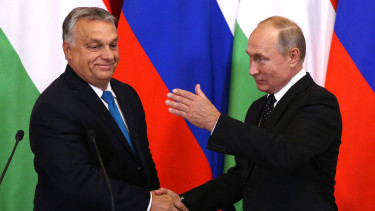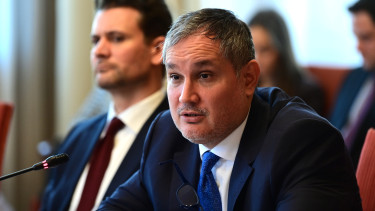CEU to move U.S. degree programs to Vienna from Budapest
Over the course of 20 months, CEU has taken all steps to comply with Hungarian legislation, launching educational activities in the U.S. that were certified by U.S. authorities. Nevertheless, the Hungarian government has made it clear it has no intention of signing the agreement that it negotiated over a year ago with the State of New York, which would ensure CEU’s operations in Budapest for the long term, CEU said in a statement.
CEU has been forced out. This is unprecedented. A U.S. institution has been driven out of a country that is a NATO ally. A European institution has been ousted from a member state of the EU
, said Ignatieff.The government has never even tried to pretend that there were academic grounds for their actions. The US Middle States Commission on Higher Education, the New York State Education Department and the Hungarian Accreditation Committee have all certified the excellence of CEU’s academic programs.
Arbitrary eviction of a reputable university is a flagrant violation of academic freedom. It is a dark day for Europe and a dark day for Hungary.
The government has done an injustice toward its own citizens, the hundreds of Hungarians who work and study at CEU, and thousands of Hungarian alumni and their families
, said Ignatieff.The university retains accreditation as a Hungarian university and will seek to continue teaching and research activity in Budapest as long as possible.
CEU thanks everyone for the support it has received and observes with dismay that the government of Hungary refused to listen to the representations they received from members of the US Congress, the Office of the Governor of the State of New York, the Venice Commission, members of the European Parliament, leaders of universities around the world, over two dozen Nobel Laureates, but above all, the thousands of Hungarians from all walks of life who demonstrated peacefully and called for ‘free universities in a free country.’Interestingly enough, President Trump’s ambassador to Hungary David B. Cornstein arrived in Budapest last summer with a mission to save CEU. At first, he said he was hopeful the CEU issue could be resolved, but according to a recent report by The Washington Post, he sought to charm Hungary’s increasingly authoritarian leader Viktor Orbán rather than try to shame him into backing down.
He compared the university’s situation to his experience owning jewelry shops within a department store.
“I was a guest in another guy’s store," he said. “The university is in another country. It would pay to work with the government."
Cornstein also downplayed the university’s importance — comparing its 1,500 students with much bigger U.S. schools such as Michigan or Ohio State — and musing why “this has become such an important subject in the world."
Ultimately, he said, the conflict is little more than a grudge match between Orbán and George Soros, a Hungarian-born financier who had founded CEO.
“It had to do with two men," Cornstein said. “It doesn’t have anything to do with academic freedom."
CEU is registered in Austria to issue U.S.-accredited degrees. It will welcome all incoming students to its Vienna location in September 2019. Enrolled students will complete their studies in Budapest, CEU said.
Chairman of the Board of Trustees, Leon Botstein, declared “the City of Vienna and the federal government of Austria have welcomed us with open arms as part of their commitment to academic freedom and research. Despite our consternation at being forced to leave Budapest, we are excited to offer our students the opportunity to study in another great Central European city."








